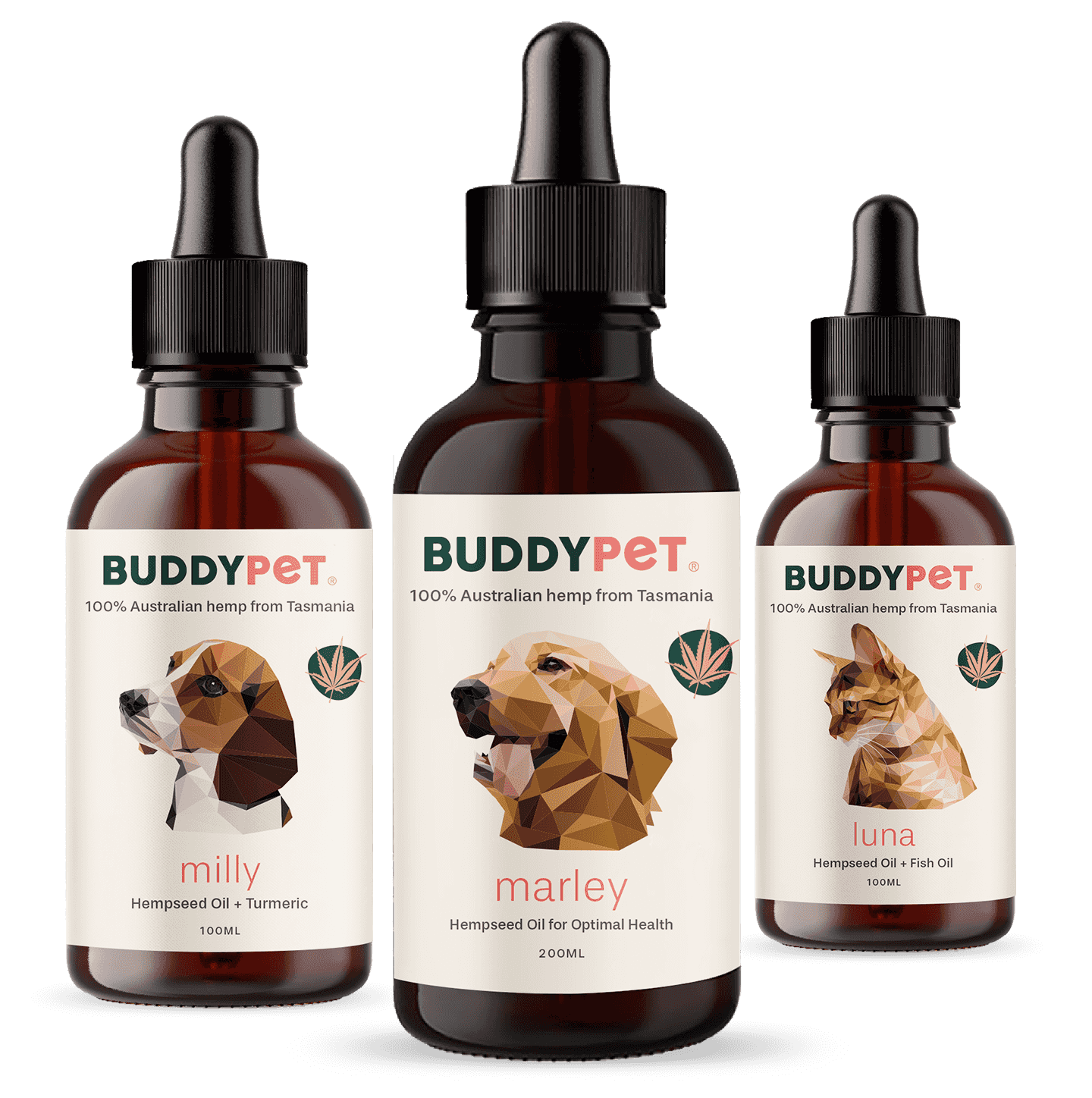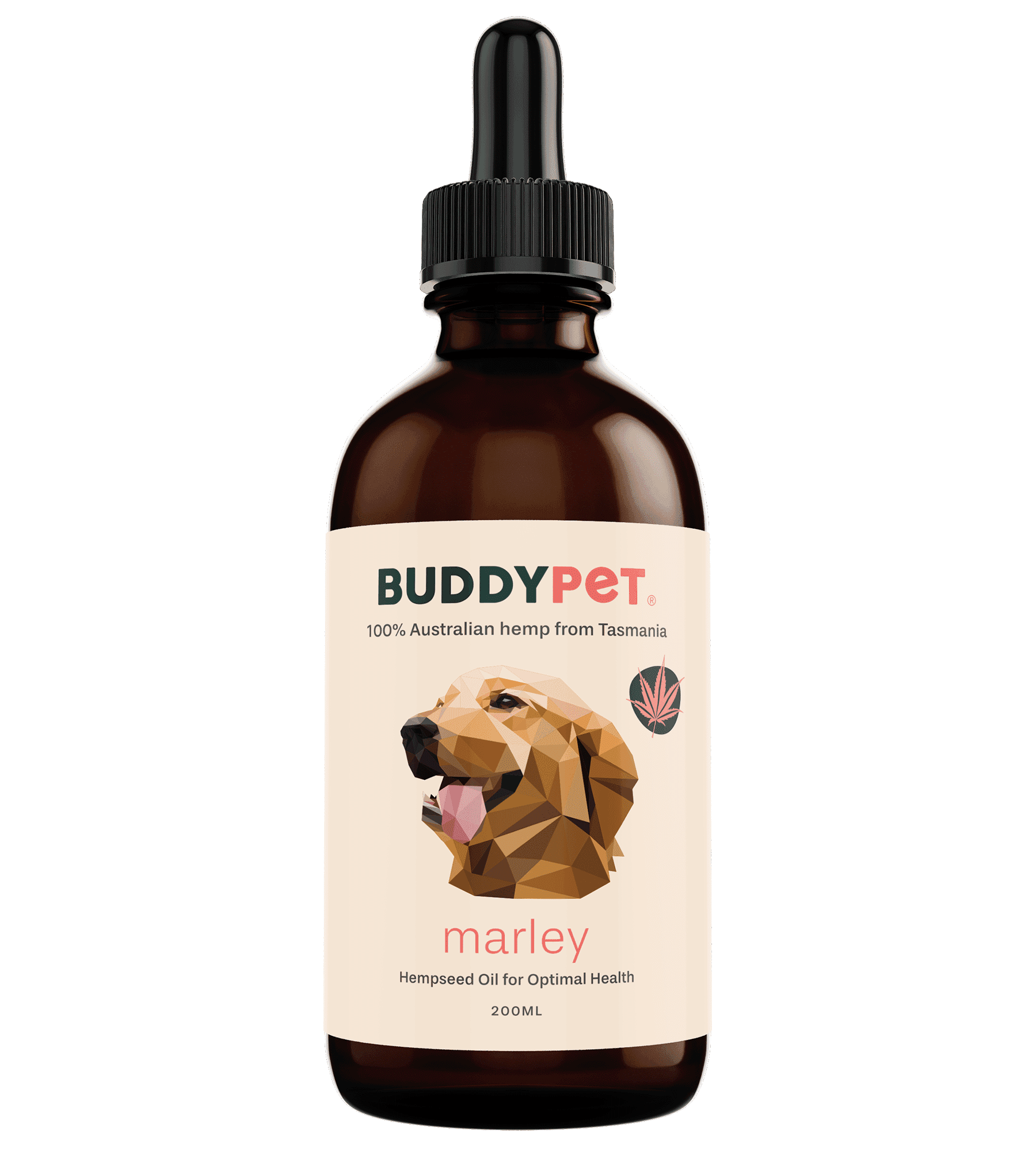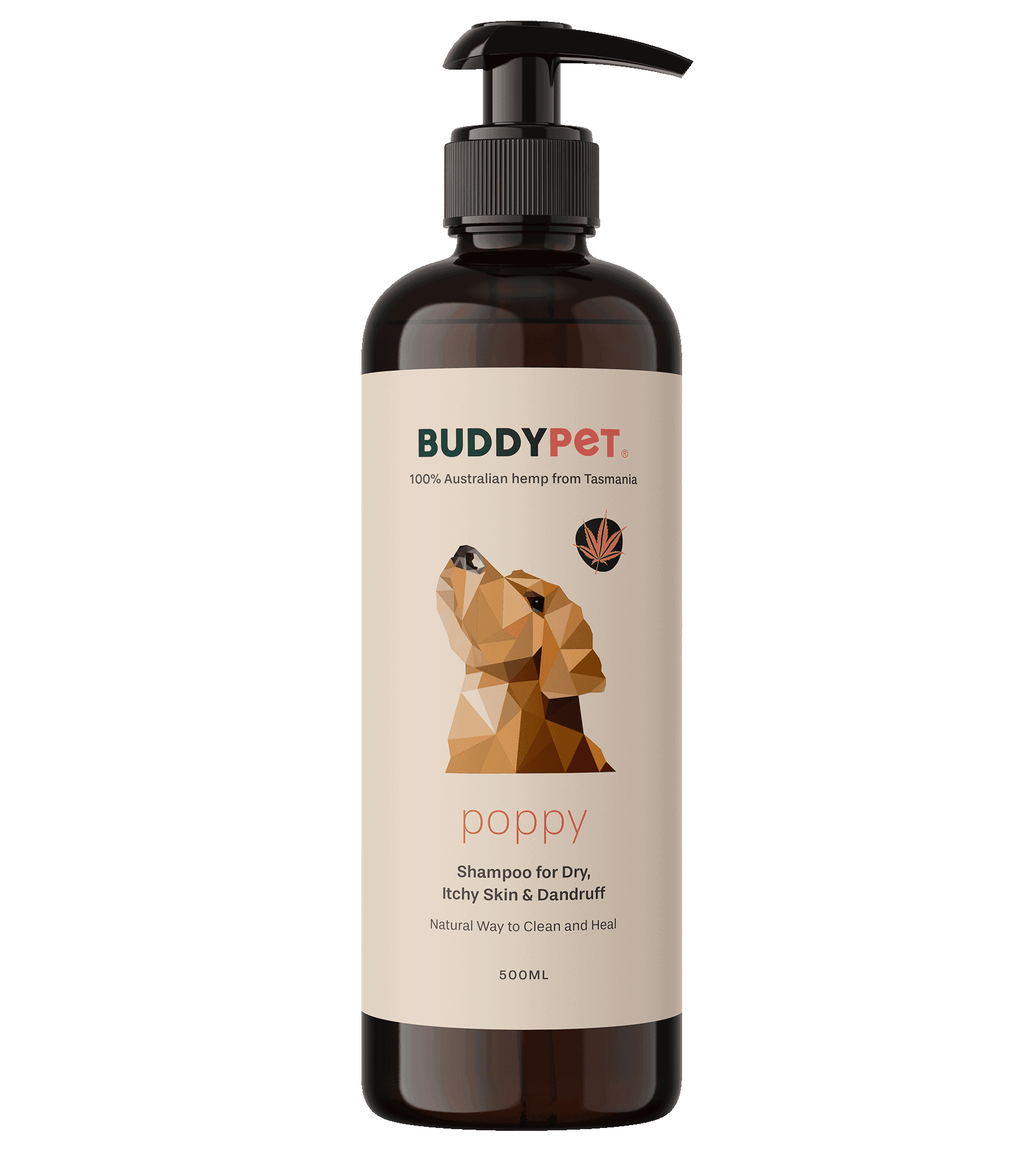Just like people, dogs can develop allergies to many things in their environment, from ingredients in their food to pollen in the air.
Allergic reactions happen when your dog’s body triggers an immune response, releasing histamines to fight off a foreign substance that their body has deemed a threat, even when the substance is harmless to other dogs.
The histamines trigger an inflammatory response in your dog, leading to uncomfortable allergy symptoms like itching and congestion.
Read on to learn the types of dog allergies, how to identify allergies in your pup, and how to manage your dog’s allergy symptoms.
3 Common Types of Allergies in Dogs
1. Inhalant Allergies, or Atopy
Like humans with hay fever, dogs can develop allergies to environmental allergens like pollen, dust, and mold. Some of these allergies may present themselves seasonally, other inhalant allergies like mold and mildew can present themselves year-round.
Common environment allergens for dogs include:
- Tree pollens
- Grass pollens
- Weed pollens
- Molds
- Mildew
- House dust mites
2. Flea Allergies
Fleas are never fun for your dog, but their bites can cause an allergic reaction in many dogs that leads to uncomfortable itching and constant scratching.
Flea saliva is the most common insect-related allergen, but other insects can cause allergic reactions in your dog as well. Spiders, ticks, mosquitoes, ants, and bees can all lead to allergic reactions in dogs.
3. Food Allergies
In an allergic reaction to a food, antibodies are produced against some part of the food, usually a protein or complex carbohydrate. Since antibody production is required for an allergy to develop, food allergies usually manifest after prolonged exposure to one brand, type, or form of food.
Common food allergens for dogs include chicken, beef, chicken eggs, lamb, soy, and dairy products.
Symptoms of Allergies in Dogs
How do you know if your dog has allergies? Unlike humans that present most of their allergies as respiratory symptoms, the most common symptoms for dogs affect their skin or digestive tract.
Here are the most common allergy systems to look for in your dog:
- Scratching, biting, or licking at their skin and paws
- Red, inflamed patches of skin
- Increased shedding
- Recurring ear infections
- Pawing at their face
- Coughing
- Sneezing
- Itchy, runny eyes
- Vomiting & diarrhea
How to Manage Your Dog’s Allergy Symptoms
1. Find the Root Cause
Before you can treat your dog’s allergy symptoms, you have to discover what’s causing the allergies in the first place. The root cause will affect your dog’s treatment options.
If your dog is displaying allergy symptoms, book an appointment with your vet. They can run diagnostic tests and help you determine what your dog is allergic to.
2. Antihistamines and Allergy Medications
For inhalant and flea allergies, your vet may recommend an antihistamine or prescribe anti-inflammatory medications to provide some itch relief for your pup. Do not administer medications to your dog without first speaking with your vet as some human medications are not safe to give to dogs.
3. Hemp Seed Oil
Hemp seed oil has anti-inflammatory properties that can help reduce skin inflammation and naturally manage your dog’s allergy symptoms.
Hemp oil is rich in omega-3 fatty acids, as well as gamma-linolenic acid (GLA). Both of these combine to naturally reduce your dog’s inflammation and relieve itching and skin irritation.
You can mix hemp seed oil in with your dog’s food, have them lick it straight off a spoon, or even apply it topically to soothe itchy skin.
For more information about hemp seed oil, please read Hemp Seed Oil Benefits.
4. Consistent Grooming Habits
Dogs can carry allergens in from outside on their coats and paws. Thoroughly wipe your dog down when they come inside to help remove excess pollen and reduce the likelihood of them ingesting the allergens.
Giving your dog regular baths and brushing them consistently can also help reduce their risk of allergies and soothe their itchy, inflamed skin. If your dog needs fast relief, anti-itch shampoos or oatmeal baths can help soothe the itch, but they aren’t long-term solutions.
5. Change Your Dog’s Diet
If your dog has food allergies, the best long-term solution is to remove the allergen from your dog’s diet. This can take time, and you’ll need to work with your vet to determine what ingredient is the cause of your dog’s allergies.
Typically, your vet will try an elimination diet trial using a hypoallergenic diet. Your dog will need to eat the new diet exclusively for at least eight weeks, and then slowly add in one ingredient at a time and watch for symptoms.
Once you’ve figured out the cause of your dog’s allergy symptoms, you can create a new, balanced diet for your dog without that ingredient.
6. Fatty Acid Supplements
For dogs struggling with itchy, irritated skin, omega-3 fatty acid supplements can reduce your dog’s inflammation. Similar to hemp seed oil, you can also add fish oil supplements to your dog’s diet. They act as natural anti-inflammatories, and they can also strengthen and soften your dog’s coat.
Coconut oil is another healthy fat that’s rich in omega-3s and helpful for soothing your dog’s skin. Coconut oil also has natural antibacterial properties that can soothe the itch.
7. Flea and Tick Prevention
The best way to manage your dog’s flea allergy symptoms is to prevent them from being bitten by fleas. Talk to your vet about the best flea and tick preventative for your dog, and keep up with the monthly applications to keep your dog safe from insect bites.
Flea and tick prevention is especially important in the warmer months when fleas are most active.
Should You Worry About Your Dog’s Allergies?
While it’s always tough to see your dog struggle with uncomfortable symptoms, most allergy cases are mild and can be managed with supplements, proper grooming, and the occasional allergy medication. However, in some dogs, the symptoms can be extreme or may become worse over time.
If your dog’s behaviour has changed, if they have difficulty breathing, or if their itching is out of control, contact your vet right away. They can help you create an allergy relief plan to get your dog feeling happy, healthy, and itch-free in no time.
At BUDDYPET, we recommend Marley to help manage allergy symptoms while promoting skin and coat health. BUDDYPET Marley is 100% raw, organic hemp seed oil from Tasmania. Add directly to food or if your pet prefers, have them lick it straight off a spoon.
For bath time we recommend Poppy. Scientifically formulated by our in-house vet for pets with inflammatory skin conditions. This gentle, 100% natural and hypoallergenic hemp shampoo for dogs provides a soothing relief to dry, itchy skin, hydrating the skin and reducing skin inflammation.
Photo by Maddy Baker on Unsplash




